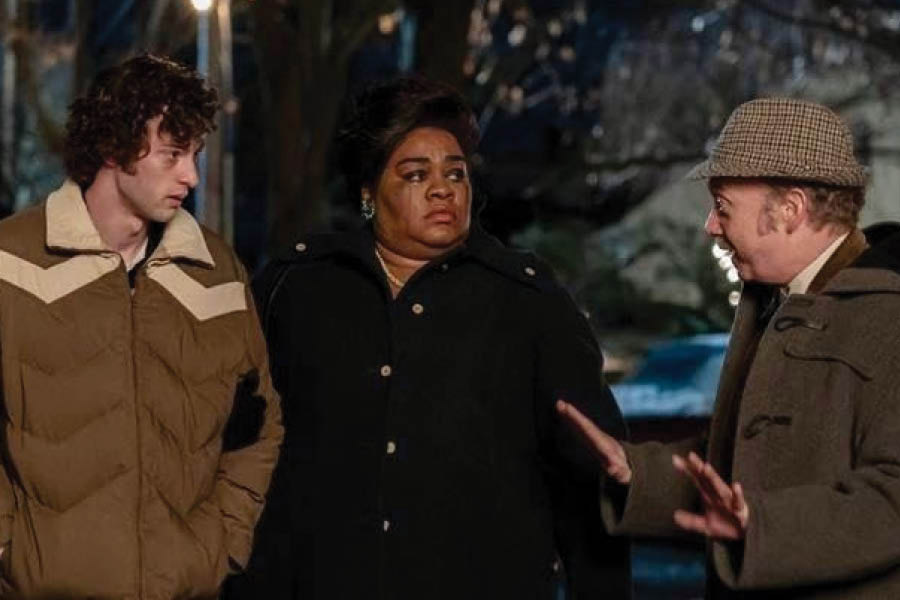The Oscar buzz around Paul Giamatti and Da’Vine Joy Randolph — nominated for best actor and best supporting actress for Alexander Payne’s The Holdovers — is well-deserved.
Set in the elite Barton Academy in New England in the winter of 1970, The Holdovers peeks into the lives of three individuals — the acerbic classics teacher Paul Hunham (Paul Giamatti), the bright and abrasive student Angus (Dominic Sessa), and the grieving head cook Mary (Da’Vine Joy Randolph) — who are stranded in the frosty, desolate boarding school during Christmas holidays because they have nowhere else to go.
Hunham, who struggles with strabismus, a condition causing misalignment of his eyes, and trimethylaminuria, a metabolic disorder resulting in an unpleasant body odour, is unpopular because of this and also for his unsocial ways. He is an easy target of ridicule for both his students and some staff members. On top of that, he’s looked down upon for being an adjunct teacher, one is below the paygrade of his colleagues. No wonder that the teacher tasked with chaperoning the ‘holdovers’ (students staying back in school during holidays) passed the responsibility onto Paul.
Angus Tully, a final-year student, is stuck in the boarding school after his mother cancelled their Christmas trip to St. Kitts and went on a holiday with her new husband. Already grappling with the absence of his father, Angus hides his pain in sarcasm and bravado, and is determined not to let the stern Hunham drain all joy from his school life.
Then there is Mary Lamb, the head cook in the cafeteria, who decided to stay back after losing her son in the Vietnam War and is dealing with her grief through smoking and drinking.
Held almost against his will, Angus viciously patronises his two reluctant guardians, which, instead of leading to more unpleasantness, forges a bond between him and Hunham. Mary acts as a bridge in helping the two —- a teenager and a manchild — understand each other better.
A Christmas party and a field trip to Boston draw them closer as they discover their connectedness through their experiences of personal loss and disillusionment.
Giamatti is brilliant as a melancholic and acerbic man who accepts his lack of charm. The character's contempt for the world is evident, and Giamatti skillfully reveals the vulnerability beneath Hunham’s rough exterior. The final scene, where he downs a bottle of rum sitting inside his car as he sets off on the road towards an uncertain future, is sure to leave a lump in your throat.
In a poignant performance, Randolph captures Mary’s weariness and grief with remarkable depth. There is a moment of quiet reflection when she is folding baby clothes, at her sister’s house, with a mix of sadness and hope that is particularly stirring.
Payne's attention to detail is evident throughout this film about finding companionship in unexpected places — from the retro aesthetic to the vintage production logos in the opening credits and a selection of a cappella school choir carols. The screenplay by David Hemingson is sharp with crisp dialogues. Like the scene where Hunham and Angus lie about their identities at a hospital to avoid filling the insurance details, or one of Hunham’s many acerbic insults at his students —- “hormonal vulgarians”.










